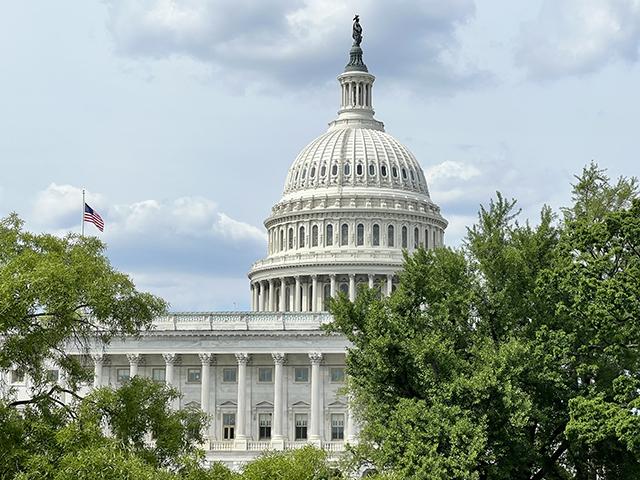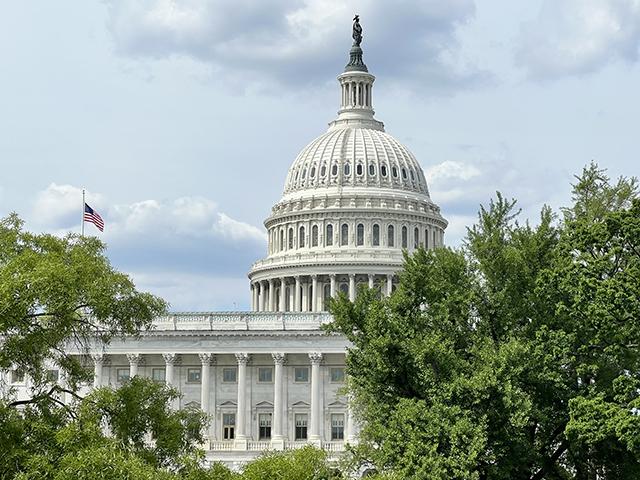Ag Policy Blog
Farm Groups React to Senate's Version of One Big Beautiful Bill
As soon as the Senate passed its version of the "One Big Beautiful Bill," all eyes turned to the House, which is lining up for a Wednesday vote on the bill.
The debate in the House Rules Committee over the bill quickly began and continued throughout the afternoon as lawmakers on both sides made their case.
Farm groups had mixed levels of praise supporting the Senate vote and calling for the House to follow suit.
Zippy Duvall, president of the American Farm Bureau Federation, applauded the Senate for passing its package. Duvall said farmers need the certainty the bill will provide with both the improvements to the safety net and the tax provisions. Duvall called on the House to pass the bill and get it to the president's desk.
"Prices being paid to farmers continue to fall, while expenses remain stubbornly high. The combination is taking a toll -- America lost more than 141,000 farms in a five-year period, leading to more consolidation of family farms," Duvall said. "Increases to reference prices as well as investments in conservation, research and trade are desperately needed, especially since it's been seven years since passage of a new farm bill. Farmers will stand a better chance of enduring tough times so they can plant for another season."
Ethan Lane, senior vice president of government affairs for the National Cattlemen's Beef Association (NCBA), also urged the House to quickly pass the Senate version and send it to President Donald Trump.
"The Senate version of the One Big Beautiful Bill protects family farmers and ranchers across the country from a massive tax hike at the end of the year, increases the Death Tax exemption, makes the Section 199A tax deduction permanent, increases the Section 179 tax deduction, funds foreign animal disease prevention programs, and delivers so many more wins for cattle producers."
Lane also noted the Senate removed provisions on the sale of public land and use of eminent domain.
"NCBA's grassroots policy supports landowners' private property rights, and we oppose the expanded use of eminent domain."
John Newton, former chief economist of the Senate Agriculture Committee and now heading Terrain, said the bill would reduce the need for farmers to rely on ad-hoc disaster assistance.
"(Ad hoc assistance is) not dependable. You can't count on it. You don't know when it's going to come, so you can't really factor it into any of these financial decisions that folks are making around loan renewal time. So, again, making this investment (in the farm safety net), you get the certainty -- you know when crop insurance is coming, you know when these Title One programs are going to deliver. If you're doing an area-based plan of insurance, you know when that's going to deliver. You don't know that with ad hoc program"
Caleb Ragland, a Kentucky farmer and president of the American Soybean Association (ASA), said the bill includes several priorities.
P[L1] D[0x0] M[300x250] OOP[F] ADUNIT[] T[]
"ASA applauds the Senate for its support of agriculture and the farm economy in this legislation. Soybean growers have long championed comprehensive revisions to the 45Z Clean Fuel Production Credit, an improved safety net for agriculture, and increased support for research and market expansion," Ragland said.
Ragland also pointed to improvements in crop insurance and the doubling of funding for USDA trade programs -- the Market Access Program and the Foreign Market Development Program, often dubbed as MAP and FMD.
The National Corn Growers Association (NCGA), pointed to the tax provisions, which includes expanded estate and gift tax exemptions, the qualified business income deduction and 100% bonus depreciation. NCGA also pointed to the modification of the 45Z.
In addition, NCGA cited improvements to crop insurance, which includes more support for beginning farmers and ranchers. NCGA also cited the MAP and FMD funding as well as improvements to the Agriculture Risk Coverage and Price Loss Coverage commodity programs.
"While we would prefer to advance major agricultural legislation through a comprehensive farm bill, we are appreciative of the Senate leadership for getting a bill with many of our tax and farm bill priorities passed," said Kenneth Hartman Jr., NCGA's president and an Illinois farmer.
Kip Eideberg senior vice president of government and industry relations for the Association of Equipment Manufacturers (AEM), said the bill's tax provisions will help spur U.S. manufacturing.
"The Association of Equipment Manufacturers applauds the U.S. Senate's passage of the One Big Beautiful Bill (OBBB) Act -- a historic bill that will strengthen U.S. manufacturing, providing the certainty in the tax code necessary for equipment manufacturers to innovate, invest, and create more family-sustaining jobs right here in America. By extending and expanding the tax reforms from 2017, the OBBB will help equipment manufacturers build more in America, while also bolstering our global competitiveness.
45Z CHANGES
On the 45Z Clean Fuels Production Credit, NCGA noted the reduction in value of the credit from $1.75 to $1.00 and shortened duration of the credit from 2031 to 2029, "actions that could injure the new market's growth potential."
The American Biogas Council credited the bill for pieces of the 45Z that will allow the tax credit for manure-based biogas projects. The bill also allows transferability of the tax credits, which will help finance projects in agriculture, wastewater and food sectors.
The Advanced Biofuels Association expressed disappointment that the Senate follows through on the House version of the 45Z credit by restricting the use of foreign feedstocks and reduces the use of the 45Z credit for Sustainable Aviation Fuels (SAF).
FOOD CUTS
The bill was projected to cut $185 billion from the Supplemental Nutrition Assistance Program (SNAP) over ten years before the Senate tweaked the bill to allow some states with higher error rates to receive a reprieve before having to pay a share of SNAP costs. That affects roughly $5.6 billion a year in 2028 and 2029.
The Food Research & Action Center (FRAC), which advocates for nutrition programs, noted the bill would lead to an "unprecedented cost-shift" to states. Beyond the SNAP cuts, FRAC noted child nutrition programs such as Summer EBT also will face cuts. States will trim their budgets to deal with the SNAP obligations, the group stated.
RURAL HOSPITALS,
Trying to offset some of the $880 billion in cuts to Medicaid, the bill has a $50 billion fund just for rural hospitals over the next five years.
Pointing to the Medicaid cuts, the National Rural Hospital Association said the bill "makes sweeping changes to Medicaid and the ACA Marketplaces. The group said those changes will result in significant coverage losses for rural Americans.
NRHA stated, "This legislation will limit access to care for all rural patients by ending health care coverage for rural residents nationwide and putting financial strain on rural facilities who care for them. The National Rural Health Association (NRHA) is extremely concerned by the Senate's cuts to provider taxes and state-directed payments which directly support rural providers and facilities. Further, NRHA is concerned that the Rural Health Transformation Program, dedicated to offset the Medicaid cuts on rural communities, will fall short of addressing the other provisions in this legislation."
Also see, "Trump's One Big Beautiful Bill Clears Senate, Sending it Back to House," https://www.dtnpf.com/…
Chris Clayton can be reached at Chris.Clayton@dtn.com
Follow him on social platform X @ChrisClaytonDTN
(c) Copyright 2025 DTN, LLC. All rights reserved.






Comments
To comment, please Log In or Join our Community .